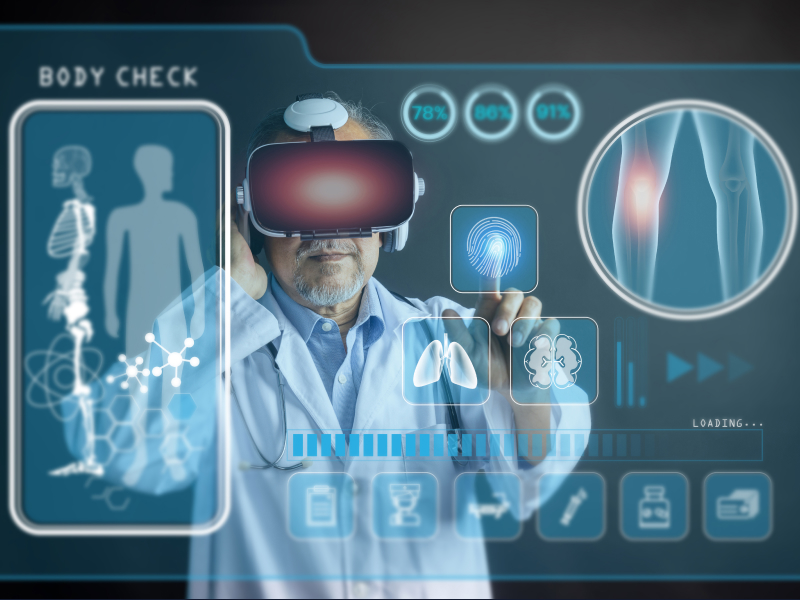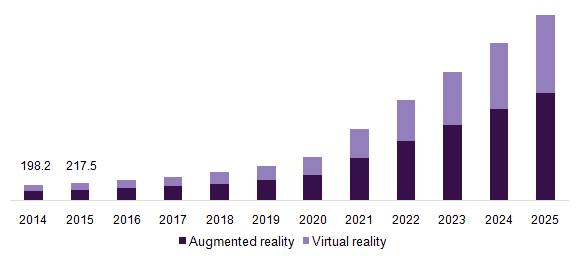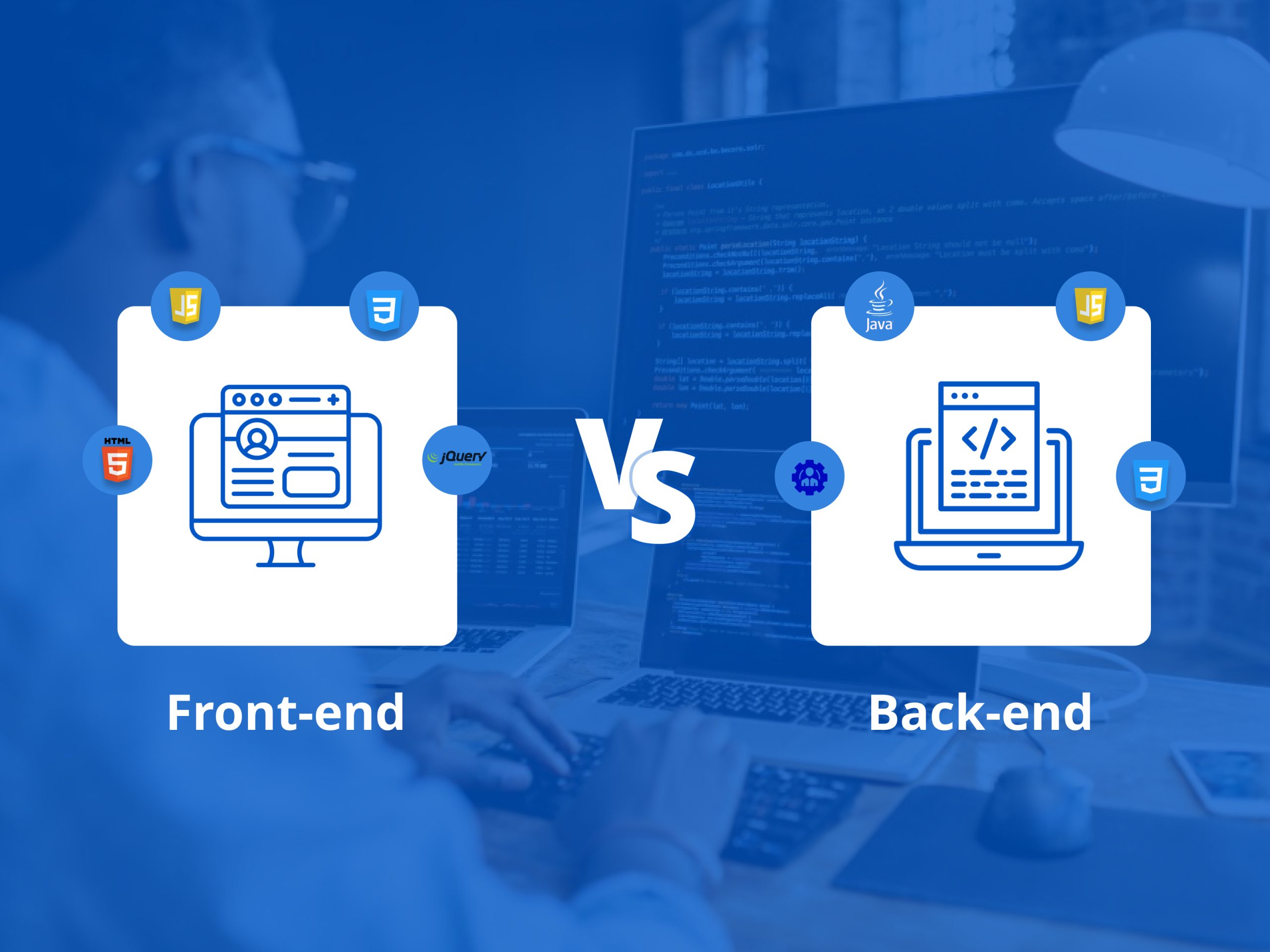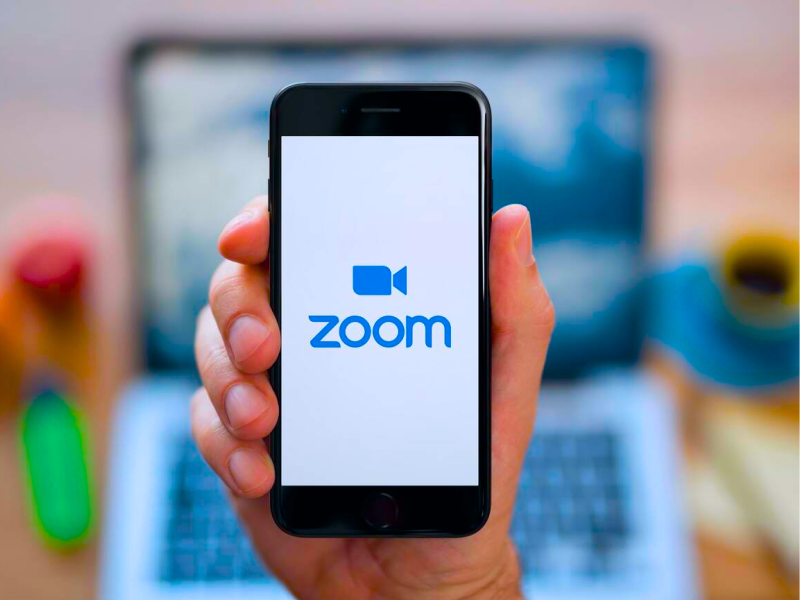The market for augmented reality is expected to grow to a staggering $88.4 billion by 2026. Out of which, over $4 billion will be invested to advance augmented reality in the healthcare industry.
You may be familiar with augmented reality’s use in the medical field. But what precisely is this new technology all about, and how does it relate to this economic sector?
The future of augmented reality in the healthcare industry is excellent. In this article, we have outlined the top benefits of augmented reality in the healthcare industry.
Let’s discuss them in detail.
Image: North America augmented reality & virtual reality in the healthcare market, by technology, 2014 – 2025 (USD Million)
Table of Contents
Top Benefits Of Augmented Reality In Healthcare
The use of augmented reality in healthcare can greatly improve the standard of care. With cutting-edge technology, AR helps clinicians better understand human anatomy while enhancing chances for international physician collaboration.
The benefits of AR in healthcare are as follows:
Improved Medical Training
With the growing popularity of online learning and the forced shift to remote mode due to the pandemic, new strategies are needed for educational activities. It is particularly pertinent for medical students who urgently require practical experience. It becomes possible through AR.
For example, students can learn human anatomy outside of textbooks and anatomical models. With the use of 3D augmented reality models, this experience can be converted to digital form.
Also Read: A Comprehensive Guide to Healthcare Software Development in 2023
Improvement In Surgery Precision
The benefits of augmented reality in surgery include enhanced laparoscopy and minimally invasive surgery skills. How does it become possible? The results of the patient’s body scans can be supplemented by the doctors using AR. The information learned can then be applied during surgery.
Better Diagnosis And Treatment
Augmented reality can help stimulate patients’ symptoms. The doctor can make diagnoses and specify treatments more easily in this way.
For instance, with AR technology, you may recreate a patient’s vision when they are afflicted with a certain eye condition or disease. The doctor can then examine the issue more thoroughly and offer solutions.
Increase Patient Satisfaction
One of the key benefits of AR in the healthcare sector is increasing patient satisfaction and engagement with hospital applications.
For instance, engaging in augmented reality experiences improve user engagement with training in apps for physical or mental rehabilitation.
Assisting Practice
AR is a very beneficial tool for enabling medical professionals to carry out daily chores more precisely and effectively, from assisting the diagnosing process to assisting with training. A few AR applications allow the surgeon to design an operation while projecting internal organ 3D visualizations or anatomical cross-sections onto a patient.
In addition to incorporating electronic medical records (EMR) that are naturally displayed on a device as a specialist examines or consults with a patient, several AR apps allow professionals to locate veins for cannulation, highlighting the immersive nature of AR for the healthcare sector once more.
Remote Guidance
A professional can give a doctor remote guidance by using an AR app in the healthcare industry. Both professionals will be able to see the same view of the patient thanks to a two-way video and audio headset. The specialist can then direct the surgeon throughout a real-time operation. As a result, the patient can receive better care and have a safer outcome.
Educating The Consumer
Much emphasis is placed on visual stimulation in various industries, and health care is no different. The AR in pharmaceutical companies allows patient education by seeing various complex products. It helps engage and educate the audience, no matter how old the patient is.
This may be a demonstration in the office of a doctor, or the consumer scans the packaging at the store or at home. Augmented reality in medicine can help close the learning gap that can cause safety problems and clearly shows how to take a drug while enhancing the benefits of the product in a visible way.
An example of this is how Pfizer AR is used by Blippar. Consumers can learn how ThermaCare works and use the Tracing Tool to learn more about suitable product options to relieve their stiffness and pain.
Also Read: Top 13 Educational App Development ideas for Startups
Helping The Physician
The strength of AR allows practitioners and trainees to access educational information without separating themselves from critical tasks. This may help practitioners comprehend the best ways to manage a new treatment or show in AR how a specific procedure must be performed.
A recent example allows medical students to interact intuitively with a 3-dimensional representation of the body. The extent to which AR will be able to support & educate healthcare professionals will continue to push the frontier where technicians and the pharmaceutical industry collaborate more.
Sales Help
One of the greatest advantages of AR is the ability to demonstrate and visualize complex concepts. The competitive landscape between drug manufacturers and service providers means that small benefits can lead to significant gains.
To competing sales representatives to the doctor’s attention, their ability to quickly demonstrate new drug benefits through AR can be beneficial. For example, imaging a three-dimensional device in the doctor’s office and showing the drug’s effect in question has a greater effect than the effect on the flat image.
Xiapex has harnessed the enhanced reality of its new treatments for people suffering from doctrine contraction. Healthcare professionals can scan the page to see the effects of the situation in 3D, see how the treatment works, see potential cost savings, and more.
After exploring the above-mentioned benefits, it can be said that with AR, healthcare software development services can improve the quality of life and open up new doors for cutting-edge technologies and future medical practices.
Also Read: 12 Best Augmented Reality(AR) Apps for Android and iOS
Wrapping Up
The enhanced reality in the pharmaceutical industry has been designed to make life easier for patients and healthcare professionals.
As the AR industry continues to push the boundaries of technology and with the right innovative healthcare partners, you can expect to see many of the most interesting AR cases that will transform the industry into the best.
To see the rising advantages of AR in healthcare industries, many augmented reality development companies are providing their services. If you are related to the healthcare industry, you should reap the benefits of AR in your industry.









